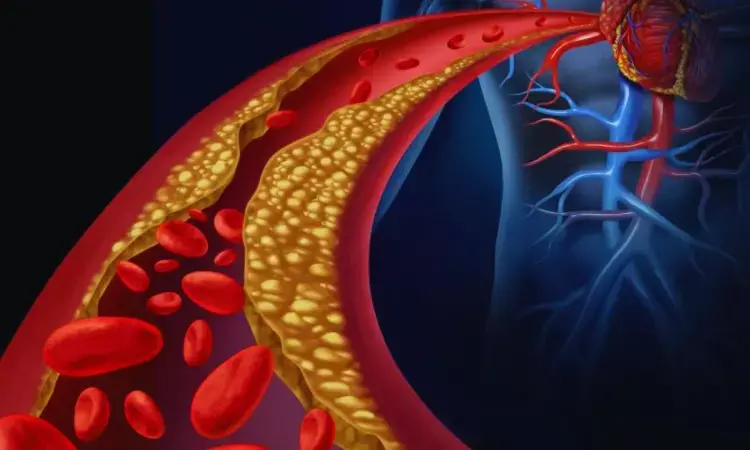- Home
- Medical news & Guidelines
- Anesthesiology
- Cardiology and CTVS
- Critical Care
- Dentistry
- Dermatology
- Diabetes and Endocrinology
- ENT
- Gastroenterology
- Medicine
- Nephrology
- Neurology
- Obstretics-Gynaecology
- Oncology
- Ophthalmology
- Orthopaedics
- Pediatrics-Neonatology
- Psychiatry
- Pulmonology
- Radiology
- Surgery
- Urology
- Laboratory Medicine
- Diet
- Nursing
- Paramedical
- Physiotherapy
- Health news
- Fact Check
- Bone Health Fact Check
- Brain Health Fact Check
- Cancer Related Fact Check
- Child Care Fact Check
- Dental and oral health fact check
- Diabetes and metabolic health fact check
- Diet and Nutrition Fact Check
- Eye and ENT Care Fact Check
- Fitness fact check
- Gut health fact check
- Heart health fact check
- Kidney health fact check
- Medical education fact check
- Men's health fact check
- Respiratory fact check
- Skin and hair care fact check
- Vaccine and Immunization fact check
- Women's health fact check
- AYUSH
- State News
- Andaman and Nicobar Islands
- Andhra Pradesh
- Arunachal Pradesh
- Assam
- Bihar
- Chandigarh
- Chattisgarh
- Dadra and Nagar Haveli
- Daman and Diu
- Delhi
- Goa
- Gujarat
- Haryana
- Himachal Pradesh
- Jammu & Kashmir
- Jharkhand
- Karnataka
- Kerala
- Ladakh
- Lakshadweep
- Madhya Pradesh
- Maharashtra
- Manipur
- Meghalaya
- Mizoram
- Nagaland
- Odisha
- Puducherry
- Punjab
- Rajasthan
- Sikkim
- Tamil Nadu
- Telangana
- Tripura
- Uttar Pradesh
- Uttrakhand
- West Bengal
- Medical Education
- Industry
Subclinical coronary atherosclerosis tied to more than 8-fold increase in MI risk

Denmark: In middle-aged, asymptomatic adults, subclinical, obstructive coronary atherosclerosis is linked with a more than 8-fold increased risk for myocardial infarction over three years than those without atherosclerosis, an observational cohort study has shown.
It is known that the development of coronary atherosclerosis may occur at an early age and remain latent for several years. Andreas Fuchs, Copenhagen University Hospital–Rigshospitalet, Copenhagen, Denmark, and colleagues aimed to define characteristics of subclinical coronary atherosclerosis linked with the development of myocardial infarction (MI) in their study featured in Annals of Internal Medicine.
The prospective observational cohort study comprised 9,533 asymptomatic adults aged 40 years or older from the Copenhagen General Population Study without known IHD (ischemic heart disease).
Subclinical coronary atherosclerosis was evaluated with coronary computed tomography angiography blinded to treatment and outcomes. Characterization of coronary atherosclerosis was done according to the extent (nonextensive or extensive [one-third or more of the coronary tree]) and luminal obstruction (nonobstructive or obstructive [≥50% luminal stenosis]).
The study's primary outcome was myocardial infarction; the secondary outcome was a composite of myocardial infarction or death.
The study revealed the following findings:
- 54% of people had no subclinical coronary atherosclerosis, 36% had a nonobstructive disease, and 10% had an obstructive disease.
- Within a median follow-up of 3.5 years, 193 persons died, and 71 had a MI.
- The risk for myocardial infarction was elevated in people with obstructive (adjusted relative risk, 9.19) and extensive (7.65) disease.
- The highest risk for myocardial infarction was observed in people with obstructive-extensive subclinical coronary atherosclerosis (adjusted relative risk, 12.48) or obstructive-nonextensive (adjusted relative risk, 8.28).
- The risk for the composite end point of myocardial infarction or death was increased in persons with extensive disease, regardless of the degree of obstruction—for example, nonobstructive-extensive (adjusted relative risk, 2.70) and obstructive-extensive (adjusted relative risk, 3.15).
"This important and exceptional study provides a benchmark against which to observe the CAD'S contemporary natural history," Michael McDermott and David E. Newby, University of Edinburgh, Scotland, wrote in an accompanying editorial. "It also provides invaluable data about prevalence and event rates of asymptomatic coronary artery disease (CAD) that will inform ongoing clinical trials and public health prevention strategies of targeting preventative therapies in individuals screened for occult coronary artery disease."
The editorialists noted that obstructive disease seemed the most predictive of myocardial infarction in these asymptomatic patients. "The findings imply that in asymptomatic patients, the obstructive disease may be more closely associated with MI, perhaps because the provocation of more severe ischemia is left unchecked in the absence of limiting symptoms."
"This contrasts with symptomatic populations where nonobstructive disease contributes to most future heart attacks, presumably from plaque rupture," the editorialists write.
Reference:
The "Subclinical Coronary Atherosclerosis and Risk for Myocardial Infarction in a Danish Cohort: A Prospective Observational Cohort Study" was published in the Annals of Internal Medicine. DOI: https://doi.org/10.7326/M22-3027.
Dr Kamal Kant Kohli-MBBS, DTCD- a chest specialist with more than 30 years of practice and a flair for writing clinical articles, Dr Kamal Kant Kohli joined Medical Dialogues as a Chief Editor of Medical News. Besides writing articles, as an editor, he proofreads and verifies all the medical content published on Medical Dialogues including those coming from journals, studies,medical conferences,guidelines etc. Email: drkohli@medicaldialogues.in. Contact no. 011-43720751


